- Home
- Fay Weldon
The Heart of the Country Page 18
The Heart of the Country Read online
Page 18
At first Henry felt quite ill at ease, obliged to eat with Judith in the kitchen. There was little conversation. But the food in the kitchen turned out to be better than that served in the dining-room. Judith would fill his own deep plate and her own from the soup tureen, place the plates carefully on the Aga stove to keep warm, then, after filling two jamjars for taking home later, would hold the tureen under the cold tap to top up the level, and take it into the dining-room. He said nothing to Lucy about this practice. Why should he? His loyalties were to Judith now; below stairs, not upstairs.
The vicar came to enquire why the girls were not attending school. Lucy, watching him come up the drive, saw him as nemesis, and greeted him with flat despair in her heart. She gave him sherry. He was a youngish man, clearly from the lower middle classes. Vicars used to be the younger sons of the landed gentry. Not what she expected.
‘The girls seem so young,’ she fluted, ladylike, wild-eyed. ‘And there’s such a lot of paper-work,’ she added, her tone altogether more sane, so, being a shrewd fellow, he took his cue from that. ‘Paper-work can be very tiresome,’ said the vicar, ‘especially for a widow like yourself.’ He was a member of the golf-course, at special rates, since he could not play on Sundays, and one of the few acquainted with Lucy – through her earlier outings with the children to the Sunday School – and her circumstances. He had assumed Benjamin had abandoned a wife: now, it seemed, he had merely left a mistress: and who was to say whose the children were, since a woman who’ll live with one man, unmarried, will sleep with another.
The Reverend Allbright nevertheless, good Christian that he was, accorded Lucy a way out. Widow, he’d said, thereby welcoming her back into the fold, the community, the Mothers’ Union. Her children would now be reckoned unfortunate, but not tainted, which was a considerable improvement.
‘If you like,’ said the vicar, ‘to hand the childrens’ birth certificates over to me, I’ll get them registered at the school. You wish them to be called Duveen?’
‘Of course.’ She paled. What did he know?
‘Sometimes widows like to revert to their maiden names,’ he said, lying through his teeth. ‘They feel they once again have the shelter of their father’s name. But you prefer to keep your husband’s name alive, I see, in them. You are a brave little woman, Mrs Duveen. I admire you and my heart goes out to you.’
And so he did, and so it did, though quite why he could not have said. His own wife, Margot, was a brisk, noble and simple woman, and their sex-life polite, simple and straightforward, a weekly event, with the lights out, occurring mostly on a Friday night. Saturday night, they both silently concurred, might leave the Reverend Allbright too tired for Sunday sermons, and certainly too much connected with the flesh, too little to the spirit. The Reverend and Mrs Allbright made a sharp division between the two, assuming that the flesh existed as a trial to the spirit: and since only he enjoyed it – and thought perhaps he shouldn’t – and she put up with it, for kindness and custom’s sake, they may well have assumed right. His strength and will were sapped, his vital juices drained away, when he succumbed to his sexual urges. And his wife could not recover from her sense of incongruity: the man in white dog-collar and black suit, whom she had married, thus translated to pink, pounding flesh and blood. Nor, come to that, could he. Still, God had devised this means of perpetuating the race and cementing the sacrament of marriage. God said do it, so they did.
Margot Allbright was obliged to cheat, too: pushing a piece of sponge soaked in vinegar up her vagina, for fear of conceiving a fifth child. Cheating herself, God, her husband, she did it, but scarcely bore to think about it. Was sex really necessary?
Now, the Reverend Allbright, surveying the sudden softening of Lucy’s sharp little face and the gratitude dawning in her eyes, caught a glimpse of other possibilities: of the exercise of sexual power, of mastery and masochism, of an entirely different scale of sexual existence than the one he was accustomed to, lapping and overlapping emotional entanglement and physical intertwinings; and even thought wildly for a moment or so of stepping to embrace his unfortunate parishioner, and seeing what would happen next –
But he did not. The moment passed.
‘I hope to see you at the church soon,’ said the Reverend Allbright. ‘I know your husband was of the Jewish faith, but I imagine you will want your daughters brought up as Christians?’
‘Of course,’ said Lucy, perfectly prepared to abandon King David in the interests of respectability.
The vicar enrolled the girls at the nearest Church of England school, which was a good two miles away, and not the secular school at the end of the road.
Lucy took the girls to church and saw that they went to Sunday School, became a member of the Mothers’ Union, voted for the expulsion of a young farmer’s wife, mother of three, who was discovered on the desertion of her husband to have been bigamously married, although not to her knowledge at the time. Exonerating circumstances, no doubt, but not powerful enough to wipe out sin. A state of sin, especially in sexual matters, could be brought about without the sinner’s knowledge. One had to be careful. Curtains must be closed lest the sun in its brilliance fade the velvet cushions. Food must be bland in case it agitated the senses: must not be too appetising, in case gluttony, that deadly sin, eroded the spirit. Servants must not be paid too much, in case they got above themselves, forgot their place. Visitors must be discouraged, in case they found out.
Found out what? Lucy could scarcely remember. She, a decent widow, with family solicitors, administering her interests, could scarcely have a guilty secret. Could she? No, she was surely too finely attuned to the lack of respectability in others: she was no hypocrite. Benjamin had said so.
‘Wash the windows, Henry,’ she’d say. He’d wash them. She’d inspect the blemishes and complain. He’d do them again. Where had Henry come from? She began to believe he was some kind of poor relative, wounded in the war, now having to be looked after, out of charity. The odd-job man, with his hobby, his photography. His little shop on the sea-front. No, not a trade.
A hobby.
The money that Henry brought home from his now prosperous business kept the household going. He slept, occasionally, with Judith; it was both their revenge upon Lucy, rather than any overwhelming desire on his part, or hers.
‘I’m not a servant: not, not, not,’ he’d say, like a naughty child, keeping time, as in some clapping street game, with his strokes inside Judith; or vaguely inside; or at any rate round and about.
‘Who does she think she is?’ Judith would respond, staring up at him, unmoved. ‘Who’s she to give herself airs? She’s nobody. Rubbish!’
She was like some piece of wood, he thought, which ought to sprout with leafy branches in the spring, but wouldn’t. Obstinate. He was reassured by her placidity, her lack of response. He could do what he liked: if he was weak, or barely roused, she did not seem to mind. He would rub himself against her, gaining such pleasure as he could: his excitement, like hers, springing from his indignation with Lucy, not from Judith’s hot stolid body. Active women frightened him. He’d been with a French girl once, on leave. She’d seemed to explode, as a man might. It had frightened him; sudden explosions in the trenches killed and maimed; explosions in the head, in the loins – all much of a muchness – were surely something to be feared.
‘Anyway, she’s a Jew,’ said Judith. ‘Dirty Jews. Everything’s their fault.’
There was a general feeling about, though seldom so vehemently expressed, that all social evils were the fault of the Jews. Unemployment, low wages, bad housing, depression – both national and personal – it was all due to the Jews. Few had actually ever met one: but they had heard.
Lucy was quite relieved that Benjamin was dead, and that Butt and Sons, Solicitors, had such a Christian name.
‘What did Father die of?’ Praxis asked Hypatia, presently.
‘Ask mother,’ said Hypatia, safe these days in the knowledge that Praxis would not. Nor did sh
e.
Praxis liked school. The building was Gothic Victorian; it smelt of cabbage, stale urine, and hot damp bodies. She loved to play and giggle and compete. The teachers were kind and complimentary. No one hid anything. Everything was open, mucky and honest. There was a separate entrance for boys and girls, and separate playgrounds, but they shared lessons. Boys sat on the side nearest the door, girls nearest the wall. It was customary. Hypatia liked school less. She was more responsive than Praxis to her mother’s inference that the family was different, raised above the common herd. Though there were no more references to King David, Lucy found figures to be proud of in her own family background: a titled great-aunt, a great-great-uncle who had invented the steam turbine. She wrote to her mother: but her mother did not reply. Why? Had she died, gone away, moved house? Lucy did not know. Presently it seemed to her that she was an orphan, and always had been.
‘My poor mother,’ she’d sometimes say. ‘My poor dead mother.’
Praxis got nits in her hair. Lucy had hysterics. Praxis’ hair was cut very short and she went to school in a scarf, along with half a dozen others. Dirty children. Lucy wrote to Butt and Sons asking if the girls could have their fees paid at a private school. No, said the Butts, conscious of their duty to the Duveen family finances, now much depleted. Much of the family money had to go towards the rescuing of obscure cousins from Hitler’s Germany.
Lucy next wrote to Butt and Sons asking whether the girls’ secondary education could not, perhaps, be paid for by their father’s family.
No, replied Butt Senior, and was the children’s mother aware that when the younger reached sixteen, all support and maintenance would stop? In the meantime, had she considered enrolling her daughters in a state sponsored school for domestic training? The girls must expect to support themselves, and in these days of the servant problem, no girl with such a training need go short of a job.
The letter, as were all letters from Butt and Sons, was addressed to Miss Parker. ‘It’s because I’m a widow,’ she explained to the postman: ‘They want to save my feelings.’ She believed it, but he did not.
Lucy had not been aware that maintenance could stop. She had envisaged it continuing for ever. She asked Henry back to the dining-room for meals, and he accepted her invitation. Judith crashed and banged about the house: Lucy could not understand why.
Hypatia won a scholarship to the grammar school; Lucy was triumphant and wrote to tell Butt and Sons of her triumph. Would they, she added, pass on the good news to the Duveen family?
‘She’s not going to be a nuisance, I hope,’ said Senior Butt to Junior Butt, holding the scented scrawl some distance from himself the better to focus. Lucy had in fact rewritten the letter seven times in order to get grammar, spelling and presentation correct.
‘You went too far,’ said the younger Butt, ‘in your earlier letter. I told you she’d respond badly to pressure. She’s a real hard egg. She tried to trap the son into marriage, and now that’s well and truly failed, and young Benjamin is out of her clutches, she’s going to try blackmailing his unfortunate family.’
‘She does have his two children,’ demurred the elder Butt.
‘That’s her story,’ said Butt Junior. ‘How could one ever be sure?’
Nevertheless Butt Senior wrote back to Lucy saying how pleased he was to hear of Hypatia’s success; hoping that Praxis might follow suit: and adding that the matters of rent and allowance and maintenance could be deferred until Praxis’ eighteenth birthday and possibly even longer.
Lucy felt bolder and returned Henry to the kitchen. The coarse hair of his nostrils repelled her: so did the pallid trembling of his hands. She was glad when he went.
On the first day at the girls’ grammar school the form mistress read out the register, while the girls murmured their presence. ‘Hilda Duveen,’ she said.
Silence.
‘When I say your name, Hilda,’ said the form mistress to Hypatia, ‘you say present. Shall we try again? Hilda Duveen?’
‘Present,’ said Hypatia. It was her mother’s doing. Lucy had never liked her children’s names, and the Reverend Allbright had undertaken to talk to the grammar school head-mistress about changing them. The news had been late in reaching Hypatia, that was all. When it was Praxis’ turn to move on to the grammar school she found that her name was now Patricia.
Available now
About this Book
When Natalie’s husband, Harry, kisses her and their two children goodbye, departs for the office, and never returns, Natalie immediately blames herself. If she hadn’t been cheating on her husband every Tuesday and Thursday afternoon, he never would have left her for his secretary, a local beauty queen…
Reviews
“A controlled, satisfying and highly characteristic tour-de-force, astringent and startling.”
Financial Times
“Confirms her genius for improvisation.”
Observer
“Witty, entertaining and intelligent”
Times Literary Supplement
“Fay Weldon’s novels are sharp as needles. This latest has such a fine point it almost draws blood.”
Daily Mail
‘To read Fay Weldon is like drinking Champagne’
Times
Also by Fay Weldon
Down Among the Women
“Down among the women. What a place to be!”
Wanda has raised her daughter Scarlet to be as tough and independent as she is. When Scarlet finds herself a single parent at the age of twenty, she is frightened.
Her friends are no happier: Sylvia, a born victim; respectable Jocelyn, hopelessly trapped in her dull, bourgeois existence; Audrey, who finally breaks out of her conventional life; and Helen, beautiful, vibrant, and doomed.
Can these women break the straps of convention and become who they really want to be?
Set in 1970s London, following the lives of a group of friends, this comic and classic novel is about identity, friendship and what happens when women turn on each other.
Down Among the Women is available here.
Growing Rich
A turbine-driven fantasy of love and revenge, values and morals.
Carmen is sixteen when she catches Bernard Bellamy’s eye. Unfortunately for Carmen, Bernard has just made a deal with the devil: his mortal soul in exchange for the fulfilment of all his desires. And he wants Carmen to be his wife.
Carmen is not so easily swayed, but can she resist all the obstacles – and temptations – the devil can throw at her?
Growing Rich is available here.
Little Sisters
Elsa, who has not a penny to her name except the scrapings from last week’s pay packet, goes with her rich, 48-year-old friend and employer, Victor, to spend her 19th birthday in the household of his millionaire friend, Hamish.
Elsa’s not really very good at typing, though she tries. Would she do better as a good-time girl? A weekend in the country with her suave new lover and his millionaire rifiends prioves that life and love are both more magical and more murderous than Elsa had ever supposed, and that the sixties are better escaped than returned to…
Little Sisters is available here.
Praxis
A portrait of a woman through time. Controversial, disturbing and witty—Fay Weldon’s most ambitious novel.
Praxis Duveen is a truly modern heroine, buffeted and battered by life, by women and by men, by herself – wry, funny, pretty innocent, knowing – yet surviving. Her story begins in the 1920s in the seaside town of Brighton. When we leave her in the in 1970s, in London, she has become – despite herself – a world-famous women’s leader.
Praxis is available here.
The Cloning of Joanna May
Joanna May thought herself unique, indivisible – until one day, to her hideous shock, she discovered herself to be five: though childless she was a mother; though an only child she was surrounded by sisters young enough to be her daughters – Jane, Julie, Gina and Alice, the
clones of Joanna May.
How will they withstand the shock of first meeting? And what of the avenging Carl, Joanna’s former husband and the clones’ creator: will he take revenge for his wife’s infidelity and destroy her sisters one by one?
The Cloning of Joanna May is available here.
The Rules of Life
A voice beyond the grave provides us with the rules of life, love and laundry.
Gabriella Sumpter is dead. But in 2004, her voice returns, from beyond the grave, to recall the details of what she calls “the course of a selfish and most agreeable life” – her own.
She tells of her long-time lover, Timothy Tovey, and the battles with Janice, his wife... of Stavros, her ‘Greek waiter’... of Walter James, who burns down her house in a fit of jealous pique. And through this tale of loves lost and cast aside, Gabriella tells us the rules of life she has picked up along the way.
The Rules of Life is available here.
The Shrapnel Academy
Named after the exploding cannonball, The Shrapnel Academy houses a mix of truly disparate characters in this eruptive saga by bestselling author Fay Weldon.
On the anniversary of the Eve of the Battle of Waterloo, an assortment of unusual dinner guests gather for what should be a peaceful weekend at a remote country house.
But fate provides a snowstorm, making escape impossible; lust, jealousy, bigotry, chauvinism, and pure greed provide the other essential ingredients for a weekend that erupts into a free-for-all of sex, mutiny, and murder…

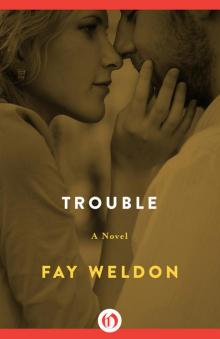 Trouble
Trouble The Heart of the Country
The Heart of the Country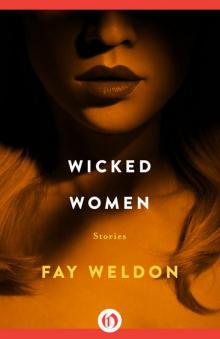 Wicked Women
Wicked Women Mischief
Mischief Long Live the King
Long Live the King Remember Me
Remember Me Worst Fears
Worst Fears Chalcot Crescent
Chalcot Crescent Moon Over Minneapolis
Moon Over Minneapolis The New Countess
The New Countess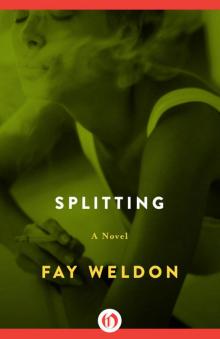 Splitting
Splitting After the Peace
After the Peace Habits of the House
Habits of the House Darcy's Utopia
Darcy's Utopia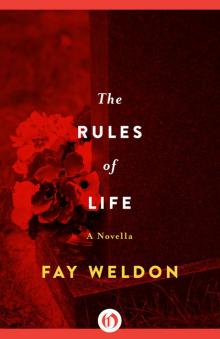 The Rules of Life
The Rules of Life Kehua!
Kehua! Before the War
Before the War Darcy's Utopia: A Novel
Darcy's Utopia: A Novel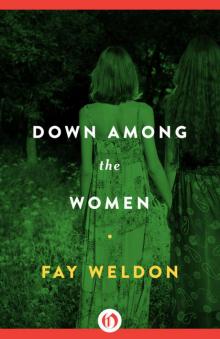 Down Among the Women
Down Among the Women Letters to Alice
Letters to Alice 3 Great Historical Novels
3 Great Historical Novels Female Friends
Female Friends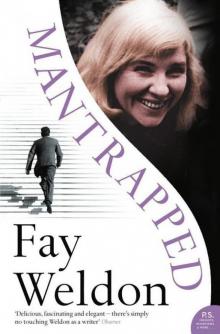 Mantrapped
Mantrapped The Bulgari Connection
The Bulgari Connection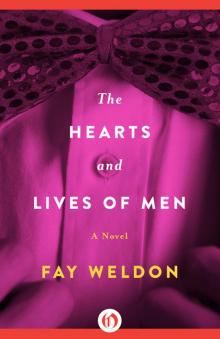 The Hearts and Lives of Men
The Hearts and Lives of Men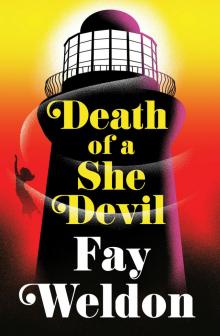 Death of a She Devil
Death of a She Devil